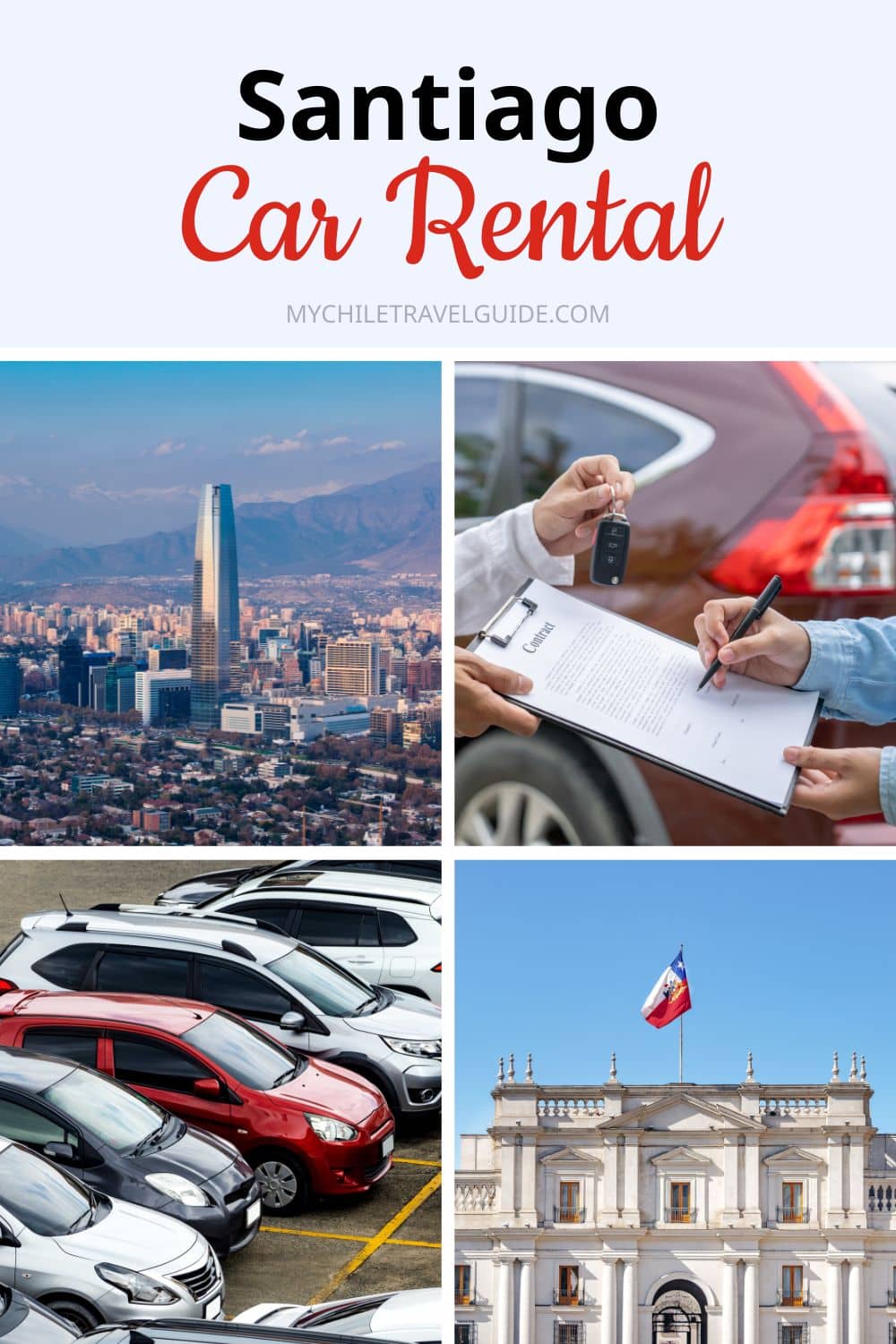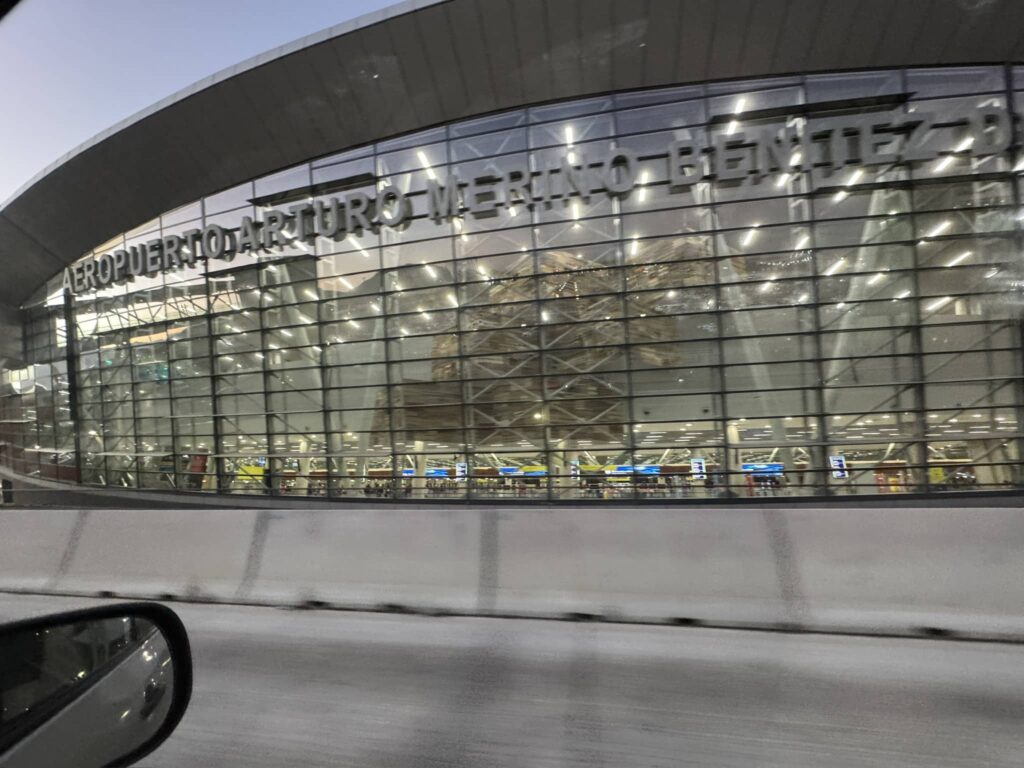
I’m used to the straight, flat Dutch roads where cows outnumber the cars, so stepping into Santiago’s traffic for the first time was a whole new experience. Wide highways cutting through the city, sudden mountain curves just 30 minutes away, and taxi drivers who seem to know secret shortcuts you’ll never find on Google Maps. That’s when I realized: Car Rental Santiago isn’t just about getting from A to B, it’s about being prepared for Chile’s unique driving culture.
In this article I’ll walk you through everything you need to know - from picking up your rental at Santiago Airport (SCL) to choosing the right car type if you’re planning to drive into the Andes. Whether you want a small car just to cruise around the city, a 4x4 for a Patagonian road trip, or simply the cheapest option available, this overview will save you time, stress, and money.
Let’s start with the basics: why renting a car in Santiago might be the best decision for your trip.

One of the first things I noticed after landing in Santiago is how quickly the scenery changes. Within half an hour you can be in the middle of the Andes, sipping coffee in a mountain village, or driving through endless vineyards in the Maipo Valley. With renting a car in Santiago, you’re not tied to bus schedules or waiting for an Uber that never shows up outside the city center.
You set your own pace: stop for empanadas in a roadside stand, take that random detour into the mountains, or keep driving until you find a small town that doesn’t even show up on Tripadvisor. That freedom is priceless.
From my personal experience, Santiago itself has a decent metro system. If you’re just staying in the city for a couple of days, you might not need a car at all. But the moment you plan a day trip - Cajón del Maipo, Valparaíso, ski slopes in winter - public transport suddenly gets complicated and time-consuming.
I remember trying to figure out buses to Cajón del Maipo and realizing I’d lose half the day just waiting. With a rental, you leave when you want, come back when you want, and don’t have to carry your luggage through a crowded metro station. In short: if you want to truly explore beyond the city limits, car rental Santiago is the smarter choice.

Arriving in Santiago can feel a little overwhelming: new country, new language, long flight. Luckily, renting a car at the Santiago airport is pretty straightforward. Most major companies have their counters right inside the arrivals hall of Terminal 1. You just walk out of baggage claim and there they are - Avis, Hertz, Sixt, Europcar, Budget.
The actual cars are parked in a rental lot just outside the terminal, about a 5-10 minute walk or a quick shuttle. Hand over your documents, sign the contract (don’t forget to check what’s included in the insurance), and you’re on the road in less than half an hour.
If you’re like me, you probably check Google Reviews before choosing a rental company. At Santiago International Airport, the biggest names are all present:
There are also several Chilean companies (like Econorent or Chilean Rent a Car) that sometimes offer cheaper daily rates, but with mixed reviews. If you value peace of mind, stick to one of the global players; if price is your top priority, local brands might be worth a look.
Here’s my personal lesson: don’t wait until you’re standing in Santiago Airport to book a car. Once, I thought I’d save time by walking up to the counter, only to find the car category I wanted was completely booked. Booking in advance online not only secures your car type (compact, SUV, 4x4), but also usually gets you a better price.
That said, if you’re traveling off-season, you might score last-minute deals on arrival. Still, for peace of mind - especially if you’re heading straight from the airport to the mountains - booking your car rental at the Santiago airport ahead of time is the way to go.

If you’re planning to stay mostly inside Santiago, a small or compact car is your best friend. The city can get busy, parking spaces are often tight, and fuel prices aren’t exactly cheap. A tiny Kia Morning for example, is perfect for zipping around the city, sliding into narrow parking spots, and not stressing when traffic gets chaotic. For short distances and city trips, you don’t need a big SUV - a smaller rental will save you both money and nerves.
The moment you leave Santiago, the landscape changes dramatically. Heading to Cajón del Maipo? Planning a ski trip in the Andes? Driving the rougher stretches of the Carretera Austral? That’s when an SUV or even a 4x4 becomes more than just comfort - it’s almost a necessity. I still remember driving up to the mountains and being very glad I had a rental with some power behind it; the steep climbs and gravel roads are no joke. If your Chile itinerary includes nature, mountains, or long road trips, this is where you don’t want to go cheap.
Of course, not every traveler is after practicality. In Santiago you’ll also find options for luxury sedans, convertibles, and even high-end brands. It’s not the cheapest way to get around, but if you’re in town for a special occasion, a business trip, or just want to enjoy cruising through the city in style, it’s available. Several international companies at the airport, as well as boutique rental agencies in the city, offer premium cars. It’s a fun way to make your trip unforgettable - even if you’ll spend half the time stuck in traffic on Avenida Apoquindo.

Prices for rental cars in Santiago can vary a lot depending on the season and the car type. On average, you’ll pay around $30–40 USD per day for a compact car, and between $50–80 USD for an SUV or 4x4. During high season (summer or ski season) those prices can easily go up. I remember renting in January and prices were almost double compared to September. If your dates are flexible, it really pays to book outside the peak weeks.
This is where many travelers get caught off guard. The base price looks cheap online, but once you’re at the counter, suddenly there’s talk of insurance upgrades, airport surcharges, or extra driver fees. Chile also has a tag system for toll roads (the “TAG”), which is usually added as a daily fee to your rental. And don’t forget fuel: some companies charge you for a full tank whether you use it or not. My advice? Always double-check what’s included in your quote and take photos of the car before you leave the lot.
If you’re after the cheapest deal, a few tricks help:
When searching for cheap car rentals in Santiago, balance is key. Saving $10 a day is great, but not if it means dealing with unreliable service or hidden charges. Sometimes peace of mind is worth the extra few pesos.

Before hitting the road, make sure your paperwork is in order. You’ll need a valid driver’s license (your national license is usually fine for short-term rentals, but some companies ask for an International Driving Permit, like I had to get at ANWB - the Dutch Tourist Association). A credit card in the driver’s name is usually also required for the deposit. Insurance is another key point: most rentals include basic coverage, but many travelers add supplemental insurance for peace of mind - especially if you’re heading into the mountains or rural areas where road conditions can be rougher.
Chile uses an electronic toll system in Santiago called TAG. Instead of paying cash at a booth, your rental car has a device that records every toll you pass. The company then charges you a daily fee for using it, on top of the toll costs. It’s convenient but adds to your budget, so ask the rental desk how much per day they charge. Gas stations are widely available in Santiago and along major highways, but once you venture into remote areas, fill up whenever you can - I’ve learned the hard way that “next station in 50 km” can actually mean 100 km if you miss the turn.
Driving in Santiago itself can feel chaotic (compared to the Dutch roads). People cut you off without hesitation, motorbikes weave between cars, and in rush hour, it sometimes feels like traffic rules are more of a suggestion than law.
One thing that surprised me at night: many cars and buses have tail lights positioned higher than I was used to, which means headlights from oncoming traffic can shine directly into your eyes - making night driving more tiring and, honestly, a bit blinding.
Outside the city, the pace is calmer, but watch for animals crossing the road and sudden changes in road conditions. Always drive defensively and give yourself extra time; it’s the safest way to enjoy the ride.
Santiago actually has one of the better metro systems in Latin America. If you’re only staying in the city, hopping on the metro is usually faster (and cheaper) than dealing with traffic and parking. Uber also works well here, especially for short rides or airport transfers, though technically it’s a gray area in Chile - drivers often ask you to sit in the front so it looks like you’re just friends. And then there are tours: for places like Valparaíso or wine country, a guided day trip might be less hassle if you don’t want to worry about navigating or driving after a glass (or two) of Carménère.
Chile is long. Really long. Driving from Santiago to the Atacama Desert would take you nearly a week — and that’s if you don’t stop. For big distances, domestic flights are the smarter choice: fly to Calama for Atacama, Puerto Montt for the Lake District, or Punta Arenas for Patagonia. From there, renting a car locally gives you flexibility without losing days behind the wheel.
That said, “distance” is very relative in Chile. I once drove from Temuco to Termas Geométricas - about 2.5 to 3 hours one way. Locals told me, “Oh, that’s not far at all!” But coming from the Netherlands, that felt like driving all the way from north down to all the way in the south in a single stretch. It made me realize how Chileans see long drives as normal, while for me it was a proper road trip.
In short: renting a car in Santiago isn’t complicated, but being prepared makes the difference between a smooth trip and a stressful one. With the right car, Chile’s highways, mountains, and coastlines are yours to explore.